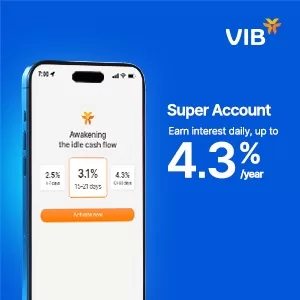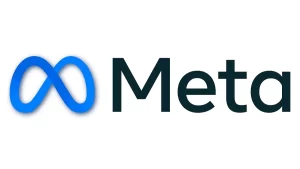AI Search Is Reshaping Reputation: Travis Schreiber on How Brands Can Respond

AI-powered search is rewriting the rules of brand visibility. Tools like ChatGPT and Google’s AI Overviews are changing how people ask questions, find answers, and decide which businesses they trust. If your reputation strategy is still built for traditional search, you’re already behind.
Travis Schreiber, Director of Operations at Erase, has seen this shift happen in real time. He’s spent years helping brands control how they appear in search results and warns that conversational AI is “rebuilding the front door of the internet.” His work focuses on adapting reputation strategies to match how AI engines read, summarize, and present brand information.
Search Isn’t Search Anymore
AI has turned search into conversation. Instead of typing short keywords, users now ask full questions like, “Is [brand] legit?” or “What’s the best HVAC company in Melbourne?”
“People are skipping the click,” Schreiber says. “They’re reading the AI summary and making decisions right there.”
Google’s AI Overviews launched to millions of U.S. users in 2024. Within months, 40% of people said they used AI-generated answers over traditional links for quick questions. And AI tools like ChatGPT or Gemini are now being used to research brands directly.
This changes how reputations form. Instead of scanning a results page, users see a single block of AI text. If that text misquotes you or blends your brand with another, it can create a false narrative instantly.
Schreiber recalls a client whose local business kept getting mixed up with a national chain. “AI summaries were pulling in Reddit complaints about the other company,” he says. “It didn’t matter that they had great local reviews, the AI answer was wrong, and customers believed it.”
Long-Tail Content Wins in AI Search
To show up in AI results, you need content that matches how people ask questions out loud. Short keywords aren’t enough. AI engines prioritize natural language and structured answers.
“Think about how someone would actually ask about you,” Schreiber explains. “Instead of ranking for ‘roof repair Sydney,’ you need to answer, ‘Who’s the best roof repair service near me?’ That’s how AI reads it.”
He suggests building Q&A-style content that directly answers reputation-driven queries:
- “Is [Brand Name] trustworthy?”
- “Who owns [Brand Name]?”
- “What do reviews say about [Brand Name]?”
These aren’t hypothetical examples. They’re the exact kinds of questions Schreiber has seen drive AI summaries. “If you don’t answer them, someone else will,” he says. “And you might not like what they say.”
Structure Matters More Than Ever
AI models scrape content differently than humans read it. They rely on structured signals, clear headings, bullet points, schema markup, to understand context.
“If your About page is buried under fluffy copy, AI won’t parse it right,” Schreiber says. “We rewrote one client’s bio into a clean Q&A format, and suddenly AI summaries slowly started quoting it word for word.”
Here’s what he recommends:
- Use schema markup: Add structured data for your company, founders, reviews, and FAQs.
- Create Q&A sections: Write concise answers to common brand questions.
- Keep it consistent: Make sure bios, LinkedIn profiles, and press mentions match exactly.
When your core facts are easy for AI to read, you reduce the risk of bad or outdated info making it into summaries.
Monitor AI the Same Way You Monitor Search
You can’t fix what you don’t see. Schreiber advises brands to audit how AI tools describe them.
“Type your brand name into ChatGPT with browsing enabled,” he suggests. “Ask it, ‘What do people say about [Brand]?’ Do the same in Gemini and Perplexity. Screenshot everything.”
He recommends running these checks monthly and flagging any inaccuracies. “We’ve seen AI list fake addresses, wrong owners, even reviews from other companies. It’s wild,” he says.
Once you spot errors, update your public profiles and high-ranking pages with correct details.
Fake Reviews Meet AI Summaries
Fake reviews are another headache amplified by AI. In 2023, Google removed over 170 million fake reviews. But AI tools still scrape and summarize those reviews, even the bad ones that were deleted months ago.
Schreiber calls this “reputation lag.” “If someone spammed your business with fake reviews two years ago, AI can still pick up old forum threads talking about it,” he explains.
The solution?
- Audit your reviews and flag suspicious ones.
- Create fresh, authentic review content to push out old mentions.
- Address past issues directly in updated bios or FAQ pages.
- Remove any negative outdated content that you can.
“AI doesn’t know what’s old drama,” Schreiber says. “If you don’t rewrite the narrative, it will keep recycling outdated junk. We’ve seen ChatGPT pulling 9 year old reviews from Gripe sites that Google delisted for exploitative practices years ago still showing up.”
The Playbook for AI-Ready Reputation
Here’s how to stay ahead:
1. Audit Your AI Presence
Run searches in ChatGPT, Gemini, and Perplexity. Document every result. Look for errors, outdated info, or misleading content.
2. Build Structured Q&A Content
Write answers to reputation questions in simple language. Use schema markup so AI can read it cleanly.
3. Keep Profiles Updated
Align your LinkedIn, Google Business, and website bios. Mismatched info confuses AI and creates bad summaries.
4. Track Reviews Monthly
Monitor review scores and volume. Respond fast, and generate new feedback to keep your reputation current.
5. Refresh Key Pages
Your About page, Contact info, and owner bios should always be accurate. These are the most common AI pull points.
6. Watch for “Reputation Drift”
Recheck summaries quarterly. AI updates fast, and so do the sources it uses.
Why This Matters Now
AI is collapsing the gap between search and decision-making. People won’t click through to page two. They’ll read the AI answer and move on.
“Your reputation is getting compressed into a single paragraph,” Schreiber says. “If that paragraph’s wrong, you don’t get a second chance.”
Brands that adapt now will own their AI presence before their competitors do. The ones that wait? They’ll be defined by whatever scraps of information the AI can find.
The Bottom Line
AI search isn’t coming. It’s here. And it’s already rewriting reputations in real time. Brands need structured, long-tail content that answers real questions, updated profiles that AI can parse, and systems to monitor how they’re being summarized.
Control the narrative before AI does it for you. Or risk watching your reputation reduced to a flawed, auto-generated blurb.











































